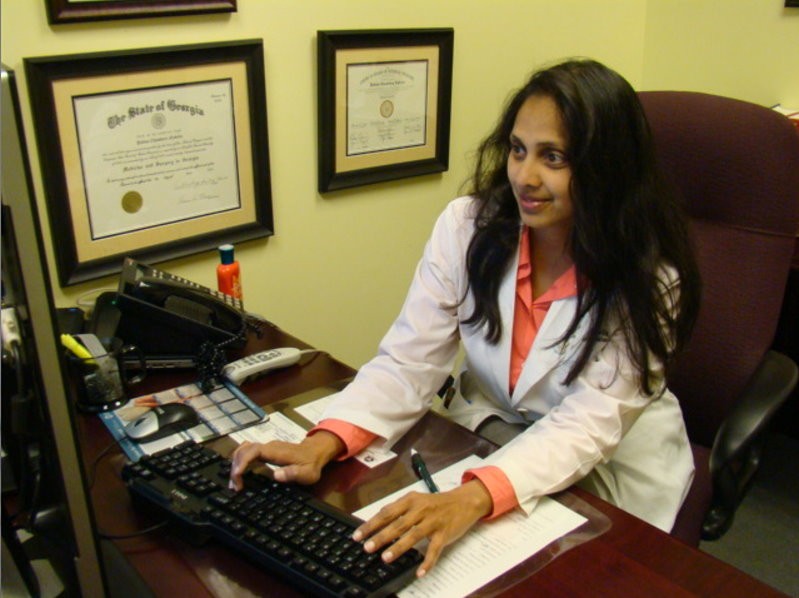Cancer: It remains one of America's deadliest killer diseases, and it has been with mankind since ancient times. But research has brought dramatic breakthroughs and hope for thousands of patients where hope did not exist before. One of our longtime reporters and writers, Jerry Gunn, is one of those who has hope. In his own words, he presents the story of his journey, his struggle, supported by the life-sustaining tools provided by Gainesville's medical professionals who are on the front lines of the cancer battle.
GAINESVILLE - My odds of staying alive, of being a colon cancer survivor, are much better than they were 10 years ago. That's according to Dr.Padma Nadella, MD/Hematologist/Oncologist, at the Northeast Georgia Diagnostic Clinic in Gainesville. Dr. Nadella came to the U.S from South Coastal India to launch a 17-year career, most of it spent battling the dread disease. She has practiced at the Diagnostic Clinic for eight years, with previous experience at Emory University Hospital in Atlanta and in private practice. As a hematologist she also treats diseases of the blood.
"Here at the Diagnostic Clinic we have several disciplines - we have four oncologists," she said. "We have a chemotherapy suite but we do more than chemotherapy. We do much more than that, we coordinate cancer care. We try to get the best treatment available whether its oral, intravenous, radiation, or surgery."
Dr. Nadella is treating me with chemotherapy, now my best option for combating the illness. There have been side effects, at times difficult to deal with, but it has prolonged my life, and a part of the treatment is helping patients deal with those side effects. Nadella says 10 or 20 years ago I might not have been here.
"If you looked at the treatment of colon cancer 10 or 20 years ago, the only chemotherapy drug we had was Flourourqul known as 5-FU," she said. "Since then, there have been several drugs released for colon cancer which have been increasing your survival. Even though you've had surgery multiple times, chemotherapy has played a major part of your treatment."
Nadella says at some stages of cancer, surgery is not an option, but chemotherapy still is and there are, for most cancers, several chemotherapy drugs compared to 20 years ago, with remarkable progress in new therapeutic drugs.
"Let's not forget that these drugs are available to us because people participated in clinical trials," said Nadella. "These drugs have been tested extensively and we now know that these drugs do prolong life, do add quality of life and do improve symptoms."
Dr. Nadella predicts the biggest advancement in drugs is coming in the next 20 years because of designer drugs achieved by research, a key to fighting cancer; she credits the American Cancer Society for raising a lot of the funding needed for research.
"Now that we have designer drugs we can do studies, we can do clinical trials and the next 20 years will bring us many many treatment options," she said. "We can still diagnose colon cancer at a very early stage by screening colonoscopies, so don't forget to have your colonoscopy. A large number of people are still curable at a very early stage of colon cancer."
Dr. Nadella says she encourages patients - as much as possible - to live the life they want to live. It's part of the treatment, it's part of the cure.
"That's a very important thing, to live the life you want to live," she said. "I always encourage people to do what they want to do and not limit yourself. If you do limit yourself that means we're failing in our treatment. We are beating cancer one day at a time, one drug at a time."

http://accesswdun.com/article/2015/4/304256/special-series-living-the-life-you-want-is-part-of-beating-cancer
